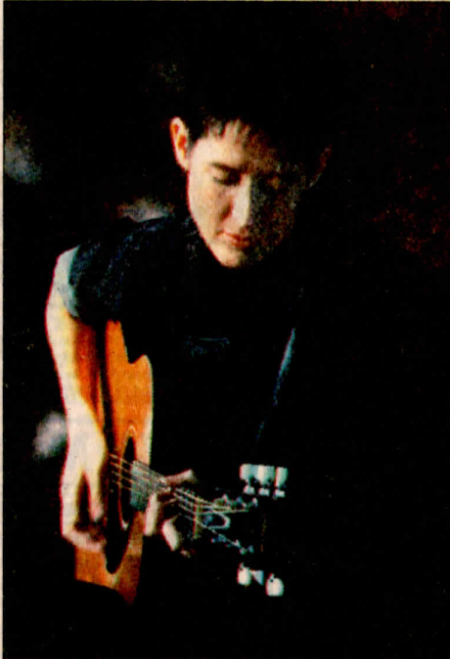The Past Without Nostalgia

With her band plinking and fiddling an old mountain tune, Michelle Shocked stood onstage at Carnegie Hall on Friday night and, like a square-dance caller, led the audience in “chair dancing.” After telling the audience to lean left and right, forward and back, she instructed, “Put your hands in the air, and wave ‘em like you just don’t care” – a ritual of hip-hop.
Ms. Shocked prizes history and heritage, but she has no fear of anachronism. Her opening song proclaimed, “When I grow up, I want to be an old woman,” and her voice can take on the twang and quaver of an Appalachian grandmother, the slides and clarity of a Celtic singer, or the sultry insouciance of a blueswoman. Yet with all of her connections to musical roots, she doesn’t treat the past as a nostalgic refuge or a quaint relic, but as an area for unsentimental investigation, for interrogation.
Her songs about the present are conversations and chronicles, full of homey details and gentle humor; “Anchorage” is simply a catching-up letter from a friend. Taking songs from the past, Ms. Shocked examines them for similar details, even if they’re hidden. At Carnegie Hall, she described trying to figure out what lay behind well-known but enigmatic tunes, finding the story of an abortion in “Cotton Eyed Joe” and morphine for wounded Civil War troops in “Shaking Hands (Soldier’s Joy).”
Those are two of the fiddle tunes that Ms. Shocked adapted, with her own lyrics, for her current album, Arkansas Traveler (Mercury). They’re part of Ms. Shocked’s heritage; she learned them from her father, “Dollar Bill" Johnston, who joined her onstage, along with her brother, Max Johnston. On her current tour, Ms. Shocked leads a modified string band, including fiddle (Ray LeGere) and banjo or flat-picked guitar (Alison Brown, who plays with a traditional banjoist’s poker face), and often without drums. In songs from earlier albums, though, the band brought an assured touch to Western swing and electric blues. Her one new selection, “Custom Cutter,” [sic] was a Celtic-tinged song about a farmer nervously awaiting help for a make-or-break harvest.
Ms. Shocked’s touring Arkansas Traveler revue also includes the group, Uncle Tupelo, which updates rural styles with modern pessimism, and Taj Mahal, who reanimates old blues songs with his own playful traditionalism; knocking out shuffles and boogie-woogie on piano or picking country-blues on guitar, he showed off a master’s offhand syncopation and mercurial vocals. He returned during Ms. Shocked’s set for “Jump Jim Crow,” a ragtime song about stereotypes of black entertainers: “Who is really the jigaboo?/Is it the white man, the white, talking that jive/Or the black man, the black, trying to stay alive?”
Obviously, Ms. Shocked has serious topics in mind, but she doesn’t let them interfere with the pleasure of the music. Arkansas Traveler itself was a backdrop for corny jokes, like a vaudeville routine: “Over the Waterfall” is a tall tale about someone who shoots the rapids in a barrel, concluding, “It don’t hurt you when you fall, only when you land.” Like her traditional forebears, she tucks any anger or despair between the lines, not concealing it, but keeping it in perspective.
From the stage, Ms. Shocked said her albums so far have been tributes looking back to her models: Texas songwriters, swing (both Western and big band) and fiddle tunes. She has already gone far beyond imitation. And her abundant musical gifts, her light touch and her clear ambition promise even more as she moves forward into songwriting that she can call her own.
Added to Library on May 10, 2020. (271)
Copyright-protected material on this website is used in accordance with 'Fair Use', for the purpose of study, review or critical analysis, and will be removed at the request of the copyright owner(s).
